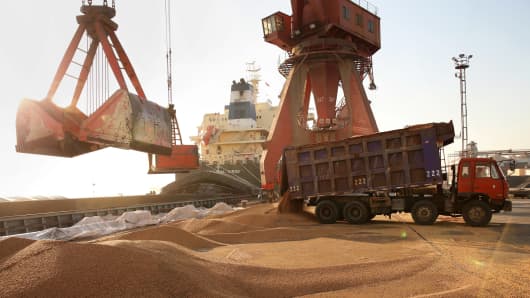A ramp-up in the pace and scope of tariffs could set the world back to 2008 in terms of global trade levels, the World Bank has warned.
In its latest Global Economic Prospects report, published Tuesday, the multinational finance organization had a grim forecast for both emerging and developed markets in the event that the commercial disputes underway between major economies intensifies.
"A broad-based increase in tariffs worldwide would have major adverse consequences for global trade and activity," the report said. "An escalation of tariffs up to legally-allowed bound rates could translate into a decline in global trade flows amounting to 9 percent, similar to the drop seen during the global financial crisis in 2008-09."
Canada, Mexico and the EU are unleashing retaliatory trade tariffs on the U.S. in response to the Donald Trump administration's announcement last Thursday that those economies would not be exempt from global steel and aluminum levies being imposed by Washington on national security grounds.
The developments follow threats between the U.S. and China, kicked off by the White House on accusations of Beijing's "unfair" trading practices and its massive trade surplus over the U.S., to hand down tariffs on billions of dollars' worth of each other's goods. The two countries are in ongoing negotiations in an attempt to avoid or lessen the tariffs.
Meanwhile, negotiations to overhaul the North American Free Trade Agreement (NAFTA) have failed to produce comprehensive agreements, leaving that deal — and the ease of trade it has enabled for 24 years — similarly under threat.

